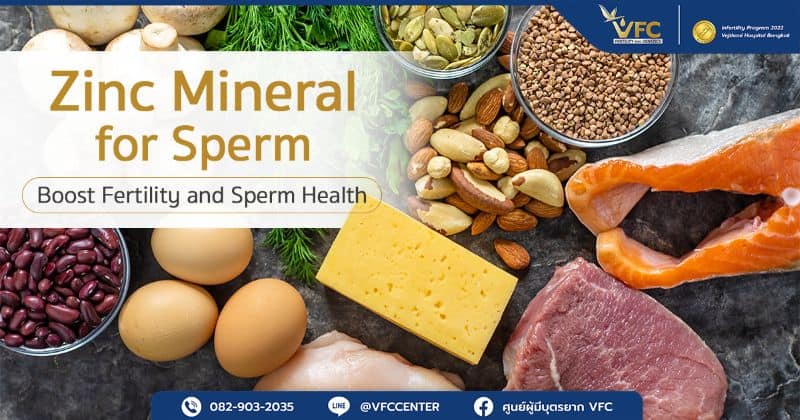
Zinc mineral is a vital nutrient that plays a powerful role in male fertility, especially in enhancing sperm health and function. From boosting sperm count and quality to supporting hormone regulation and motility, zinc is essential for men who are planning to conceive. This article explores how zinc affects sperm and what steps men can take to optimise reproductive outcomes naturally through diet, supplements, and professional fertility support.
Supporting sperm health is an important step for men trying to have a baby. One of the key nutrients that plays a major role in sperm enhancement is zinc mineral. Beyond its direct effect on sperm production, zinc also helps regulate male reproductive hormones, increasing the chances of conception and successful pregnancy. Understanding zinc’s role in sperm enhancement allows men to optimize self-care and dietary choices to fully prepare their bodies for conception.
What is Zinc Mineral?
Zinc mineral is an essential trace element critical for multiple body functions, including cell growth, immune system performance, and hormone regulation. Since the body cannot produce zinc on its own, it must be obtained through regular consumption of foods rich in this mineral.
The Role of Zinc Mineral in Sperm
Sperm enhancement with zinc mineral is crucial, as zinc plays several key roles in supporting healthy sperm function:
Supports Sperm Development and Growth
Zinc acts as a vital cofactor in the development of sperm from stem cells to fully mature, fertilization-ready sperm.
Increases Sperm Count and Semen Quality
A deficiency in zinc can reduce sperm count and decrease semen quality, which is a common cause of male infertility. Adequate zinc intake helps the body produce high-quality sperm.
Supports Sperm Motility
Sperm needs to move efficiently to reach the egg. Sufficient zinc intake enhances sperm motility, improving the chances of successful fertilization.
Regulates Testosterone Levels
Zinc contributes to maintaining healthy testosterone levels, which are essential for reproductive balance. Adequate zinc supports sexual function and overall sperm production.
Check your hormone levels and reproductive health to plan for pregnancy at VFC Center.
Effect of Zinc Deficiency on Sperm and Fertility
Zinc deficiency can negatively affect sperm quality and count, potentially causing fertility issues including:
Reduced sperm count, abnormal shape, and slow movement
Without enough zinc, sperm production is impaired. The sperm produced may be fewer, abnormally shaped, and slower, reducing fertilization potential.
Negative impact on male hormones
Low zinc levels may reduce testosterone, affecting sexual function and leading to lower-quality sperm.
Increased risk of male infertility
Studies show that men facing fertility issues often have lower zinc levels. Supplementing zinc is one way to support sperm enhancement and improve reproductive outcomes.
Check sperm quality with a fertility specialist and plan for conception at VFC Center.

How to Support Sperm with the Zinc Mineral
Consume zinc-rich foods
Include foods high in zinc such as oysters, red meat, eggs, nuts, and seeds, in your daily diet.
Supplement with zinc when necessary
Sometimes food alone is insufficient. Zinc supplements can help maintain optimal levels, but they should be taken under medical supervision to avoid excessive intake.
Ensure adequate zinc intake
Sufficient zinc supports sperm health and male sexual function. Adult men should aim for 11 mg per day and avoid excessive alcohol, which can impair absorption.
Consult a specialist for guidance on optimizing sperm enhancement and fertility.
Other Nutrients that Support Sperm Alongside Zinc
In addition to zinc, other nutrients contribute to sperm enhancement:
- Vitamin C: Protects sperm from oxidative damage and improves sperm quality.
- Vitamin E: Acts as an antioxidant, protecting sperm DNA and enhancing motility.
- Selenium: Works with Vitamin E to protect sperm and boost motility.
- Folic Acid: Supports healthy sperm production and prevents chromosomal abnormalities.
The combination of these nutrients improves sperm quality and increases the likelihood of conception. In addition to zinc, supplementing with other sperm-enhancing nutrients further improves fertility outcomes.
At VFC Center (V-Fertility Center), we provide professional guidance on sperm enhancement and comprehensive fertility care. Our experienced reproductive specialists support men planning to conceive, ensuring the path to pregnancy is as smooth as possible. To receive an accurate semen analysis in Bangkok, contact us for a personalized consultation.
Frequently Asked Questions (FAQs)
1. How does zinc mineral help improve sperm quality?
Zinc supports the full development of sperm cells and improves semen quality. It plays a key role in sperm count, motility, and shape, which are all important factors in successful fertilisation.
2. Can zinc deficiency cause male infertility?
Yes, low zinc levels are associated with decreased testosterone, reduced sperm count, and abnormal sperm morphology, all of which can lead to fertility challenges.
3. What foods are rich in zinc for sperm enhancement?
Zinc-rich foods include oysters, red meat, eggs, nuts, seeds, and whole grains. Including these in your diet helps naturally boost zinc levels and support reproductive health.
4. Is it safe to take zinc supplements for fertility?
Zinc supplements can support sperm enhancement but should be taken under a doctor’s supervision. Excessive intake can lead to adverse effects, so dosage matters.
5. Are there other nutrients that support sperm alongside zinc?
Yes, nutrients like Vitamin C, Vitamin E, Selenium, and Folic Acid work together with zinc to improve sperm health and increase the chances of conception.
Article by Dr. Nannapat Parosiyanont
Contact or Book a Consultation:
VFC Center – V-Fertility Center
Hotline: 082-903-2035
LINE Official: @vfccenter

The team of specialists in obstetrics and gynecology and reproductive medicine





No Comments
Sorry, the comment form is closed at this time.